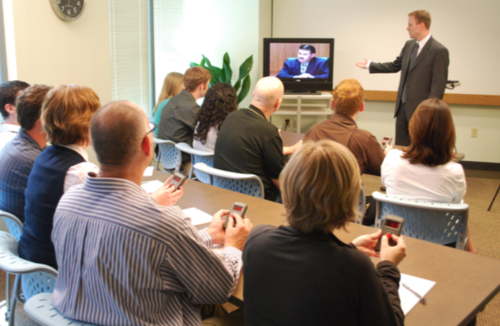Jurors are the cornerstone of the legal system in America. Thousands of jury trials are held every year in which a group of jurors determine the outcome of the case. In an effort to preserve the integrity of the legal system, no one but the actual jurors are allowed in the deliberation room. Thus, how and why cases get decided is shrouded in mystery.
How can savvy litigators pierce the veil and learn how a jury is likely to decide? Since the 1970s, attorneys have been using jury research to learn how jurors will react to their cases. If used properly, jury research can be a valuable asset for any litigation team. Keep reading to learn how it works!

Definition
Jury research is the study of the behavior of jurors. In the world of litigation, jury research typically involves examining the responses of a group of people from a particular venue after they are presented with the case. Jury research attempts to gain some understanding of how jurors (or mock jurors) reach a verdict in a criminal or civil case.
Purpose of Jury Research
 In litigation, attorneys conduct jury research before a trial. By presenting their arguments to a group of people from their case’s venue, the trial team is able to get unbiased feedback that may reflect how an actual jury will react to their case. Armed with objective responses from the mock jurors or focus group participants, the attorneys can adjust their case themes and arguments to be more persuasive at the actual trial.
In litigation, attorneys conduct jury research before a trial. By presenting their arguments to a group of people from their case’s venue, the trial team is able to get unbiased feedback that may reflect how an actual jury will react to their case. Armed with objective responses from the mock jurors or focus group participants, the attorneys can adjust their case themes and arguments to be more persuasive at the actual trial.
In academia, jury research may be done during or after a trial to learn more about how jurors act individually and collectively.
Types of Jury Research
There are various types of jury research used to prepare for litigation such as mock trials, focus groups, and online jury research.

Like it sounds, a mock trial involves getting a group of people from a particular venue to serve at “jurors.” The trial team presents their arguments to the jurors like they would at a regular trial (with opening and closing statements, witnesses, and deliberations).

Focus groups are used by attorneys to get feedback on particular issues pertinent to their case. During a focus group, participants are presented with some aspect of a case and then discuss it with the other participants. Focus groups are typically more limited in scope than mock trials and are not presented in a trial format.

In recent years, widely available technology and connectivity have made online jury research possible. There are different methods of online jury research, but most involve presenting a case online to individuals in a particular region. The online format is generally more cost-effective and unlocks feedback from a wider range of respondents.
Jurors are instrumental to the legal system in America. By conducting some kind of jury research, attorneys are better able to prepare for trial. Jury research removes part of the mystery of a trial and often leads to more favorable verdicts.
Want to learn more about jury research options available for your case? First Court offers a complimentary strategy session to discuss the particulars of your case with our experienced trial consultants - schedule a session here, or give us a call any time: Contact Us
Jan 19, 2022 3:12:47 PM





Comments